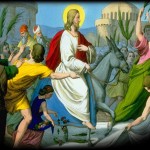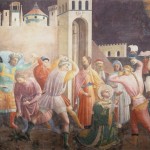in the service of the Lord
Inherent within each and every one of us resides a secret dream, a fantasy if you prefer, of being the central figure in the great adventure of life, the most admired, the most famous, the most interesting, or the most powerful. At times our fantasies would, if they could, make us feel almost as gods. But then these are but dreams and dreams seldom if ever match reality. Within the hidden spaces of our minds, what our dreams truly represent is the very human desire to be noticed, appreciated, recognized and loved. No matter who we are, we all have a need to be valued, to experience, if only for a moment, the spotlight shining upon us. We all long for our fifteen minutes of fame.
More »










